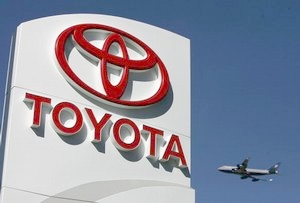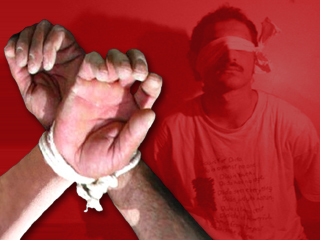Touted by the East German leadership as a barrier against "fascist provocation," the Wall was really an attempt to stop waves of skilled workers and educated people leaving a repressive state
Published:
10 November 2004 y., Wednesday
Touted by the East German leadership as a barrier against "fascist provocation," the Wall was really an attempt to stop waves of skilled workers and educated people leaving a repressive state. Around 3 million fled between 1945 and 1961, when the Wall went up. In time, it became etched in the Western consciousness as a symbol of inhumanity. More than 100 people were picked off by border guards while trying to escape; dozens of others were killed by mines.
However, by November 9, 1989, deep political shifts had prepared the ground for an earthquake. Leader Erich Honecker had been forced to resign and 4 million people had demonstrated for democracy. On that momentous day, the government's spokesman Guenther Schabowski announced that East Germans could go to West Germany if they applied for a visa.
Within minutes, people swarmed around the wall's border posts in what amounted to a siege. At midnight, they broke through to West Germany. That sounded the death knell for the Cold War and set the stage for German reunification a little more than a year later. But 15 years on, a very different kind of mass mobilisation took place. The demonstrations in Leipzig this August highlighted the economic plight of the former East German regions, where unemployment is double that of the western part.
When the old regime collapsed, many skilled workers found themselves on the wrong side of supply-and-demand economics.
Šaltinis:
euronews.net
Copying, publishing, announcing any information from the News.lt portal without written permission of News.lt editorial office is prohibited.
The most popular articles
 The European Institute for Gender Equality (EIGE) will, for the first time, open its doors in Vilnius on 16 December 2009.
more »
The European Institute for Gender Equality (EIGE) will, for the first time, open its doors in Vilnius on 16 December 2009.
more »
 The European Commission has today launched a public consultation on the future of air passenger Rights and released a top 12 list of recommendations to guarantee travellers a safe and problem-free journey this Christmas.
more »
The European Commission has today launched a public consultation on the future of air passenger Rights and released a top 12 list of recommendations to guarantee travellers a safe and problem-free journey this Christmas.
more »
 Japan's Toyota Motor announced that it will begin selling "plug-in" hybrid cars in mass volumes in two years' time.
more »
Japan's Toyota Motor announced that it will begin selling "plug-in" hybrid cars in mass volumes in two years' time.
more »
 The first results of the latest Eurobarometer survey reveal that for Europeans unemployment is the most important issue facing their own country, while concerns about the economic situation have lessened slightly.
more »
The first results of the latest Eurobarometer survey reveal that for Europeans unemployment is the most important issue facing their own country, while concerns about the economic situation have lessened slightly.
more »
 The Human Rights Day focuses on non-discrimination with the motto “Embrace diversity, end discrimination”.
more »
The Human Rights Day focuses on non-discrimination with the motto “Embrace diversity, end discrimination”.
more »
 With the season‘s holidays approaching DnB NORD Bankas issued the first gift card in Lithuania that allows the card holder to pay for the presents they enjoy in any shopping, entertainment or catering place where Maestro payment cards are accepted.
more »
With the season‘s holidays approaching DnB NORD Bankas issued the first gift card in Lithuania that allows the card holder to pay for the presents they enjoy in any shopping, entertainment or catering place where Maestro payment cards are accepted.
more »
 Australian journalist Nigel Brennan was on his way to a camp in Somalia in August last year, to highlight the plight of the country's refugees, when he and his colleague, Amanda Lindhout were kidnapped by gunmen.
more »
Australian journalist Nigel Brennan was on his way to a camp in Somalia in August last year, to highlight the plight of the country's refugees, when he and his colleague, Amanda Lindhout were kidnapped by gunmen.
more »
 Corruption remains an obstacle to development and threatens economic recovery. No country in the world is immune to corruption and that also applies to each of the 27 EU Member States.
more »
Corruption remains an obstacle to development and threatens economic recovery. No country in the world is immune to corruption and that also applies to each of the 27 EU Member States.
more »
 People across Europe should be encouraged to volunteer more to help themselves and the wider community, MEPs said in a resolution on 26 November.
more »
People across Europe should be encouraged to volunteer more to help themselves and the wider community, MEPs said in a resolution on 26 November.
more »
 he heat is on for the UN's most senior climate official. Yvo de Boer , executive secretary of the United Nations Framework Convention on Climate Change, is optimistic the climate summit will produce a signed and seal deal.
more »
he heat is on for the UN's most senior climate official. Yvo de Boer , executive secretary of the United Nations Framework Convention on Climate Change, is optimistic the climate summit will produce a signed and seal deal.
more »